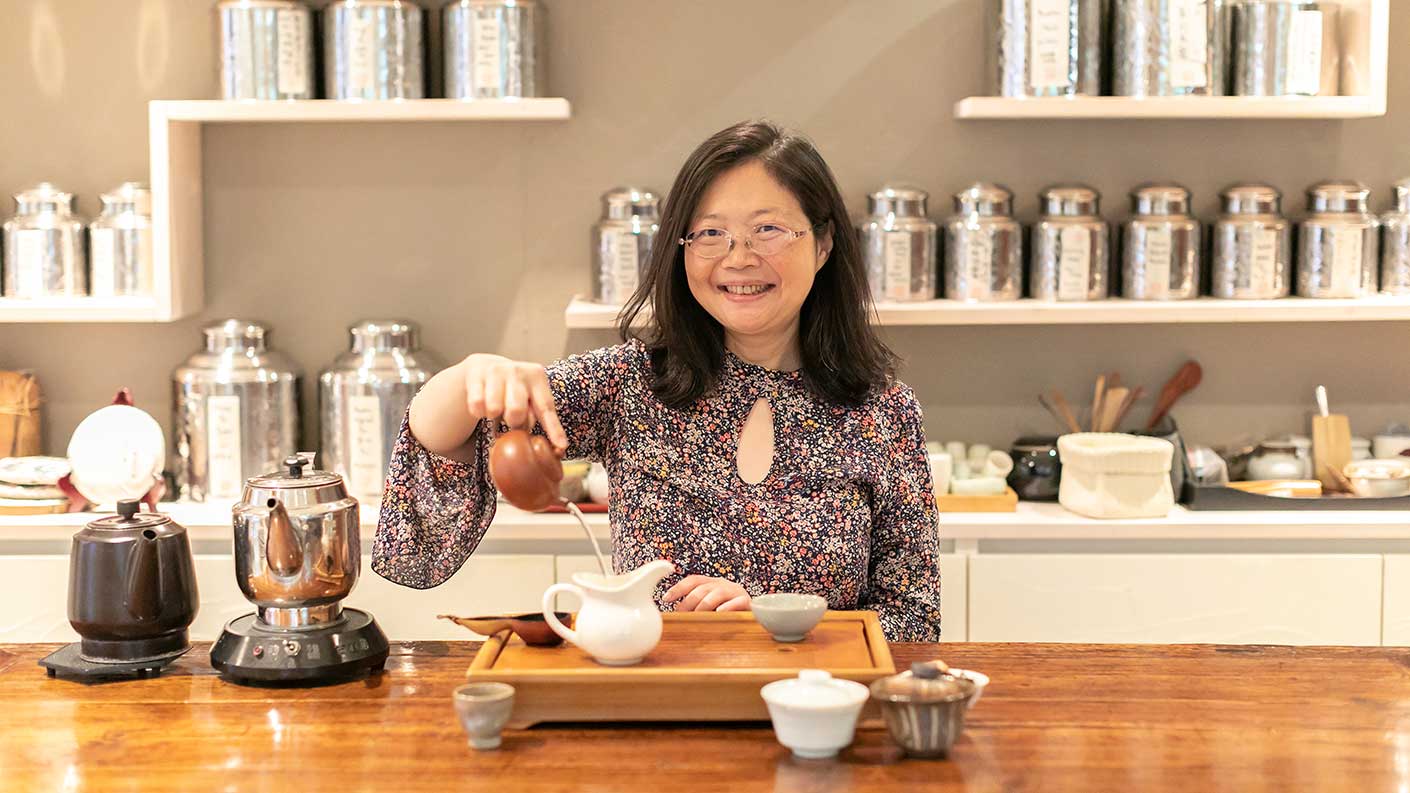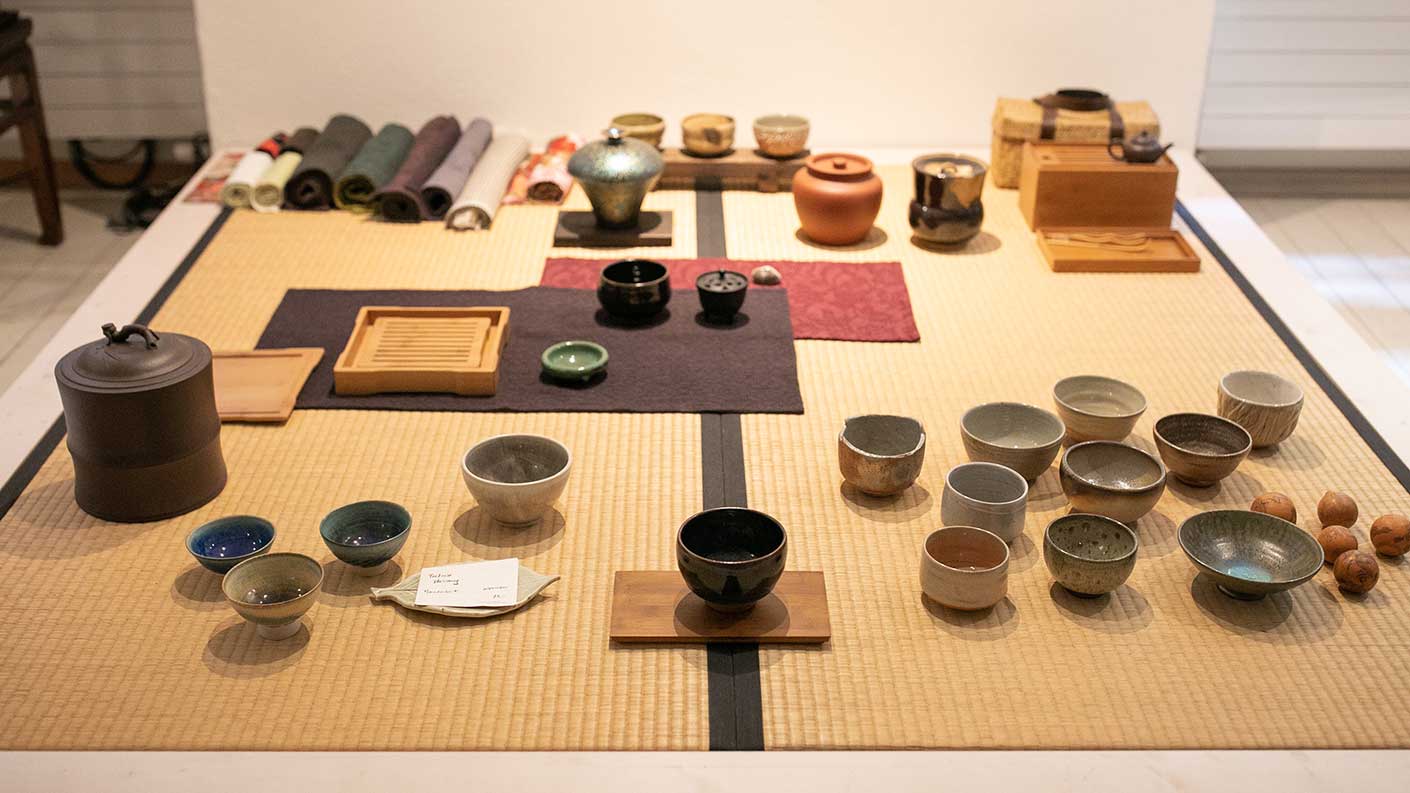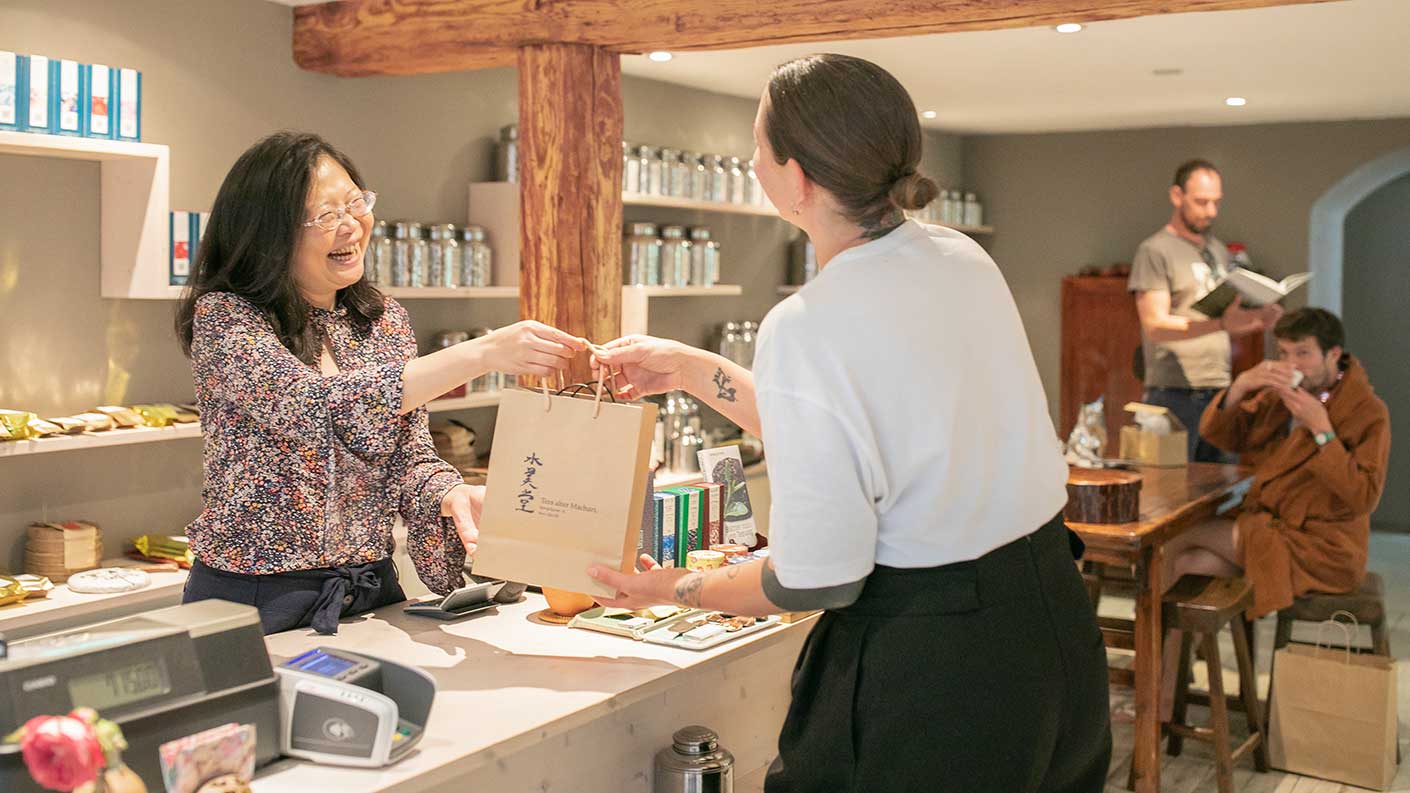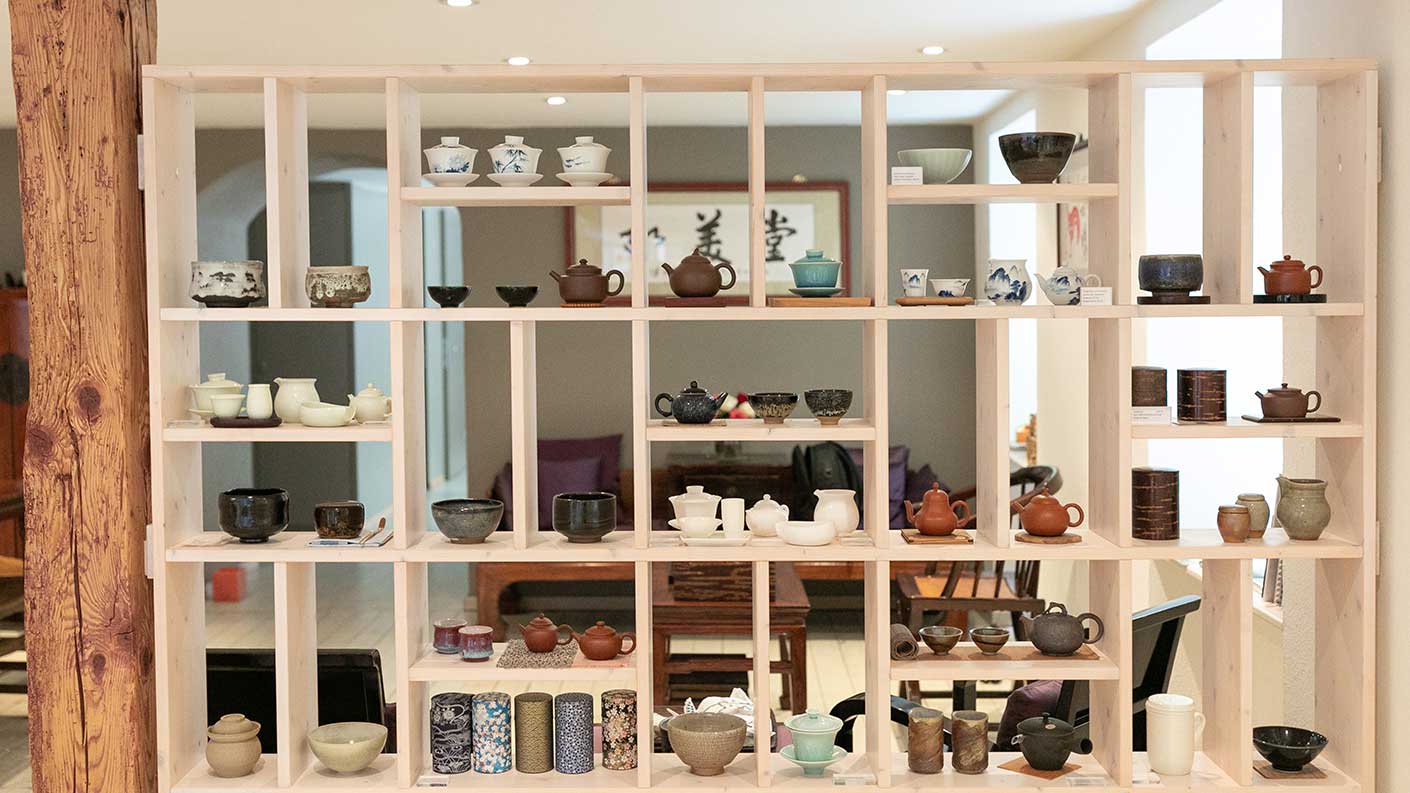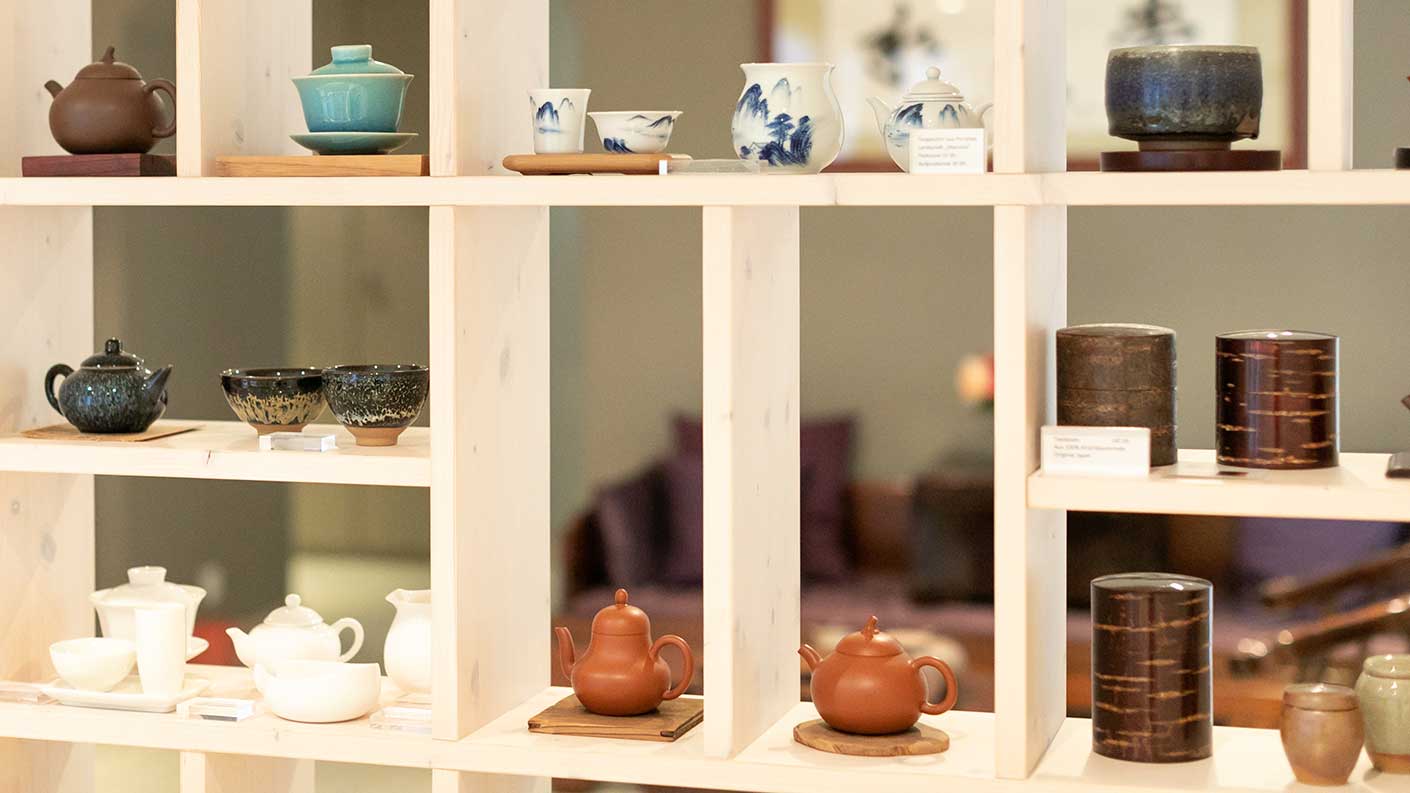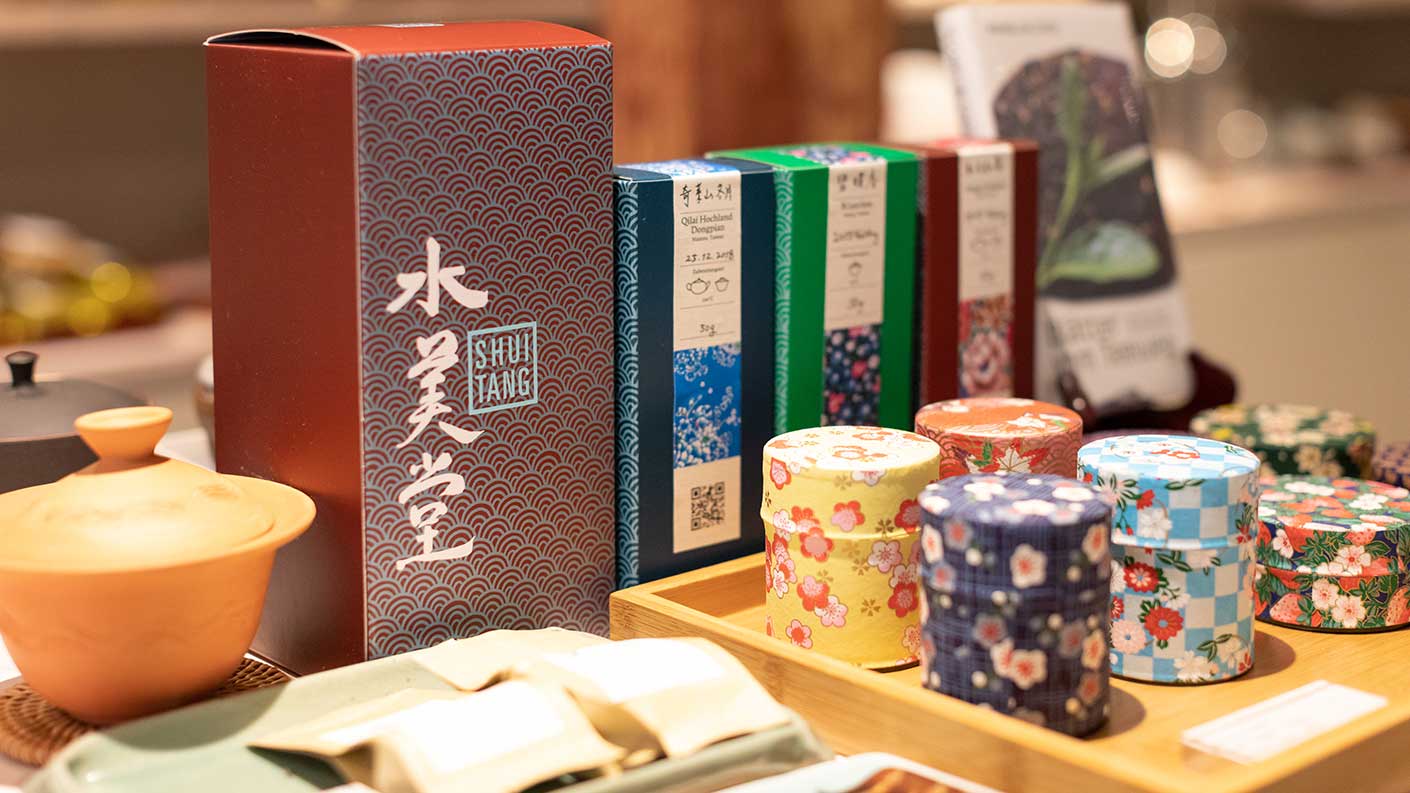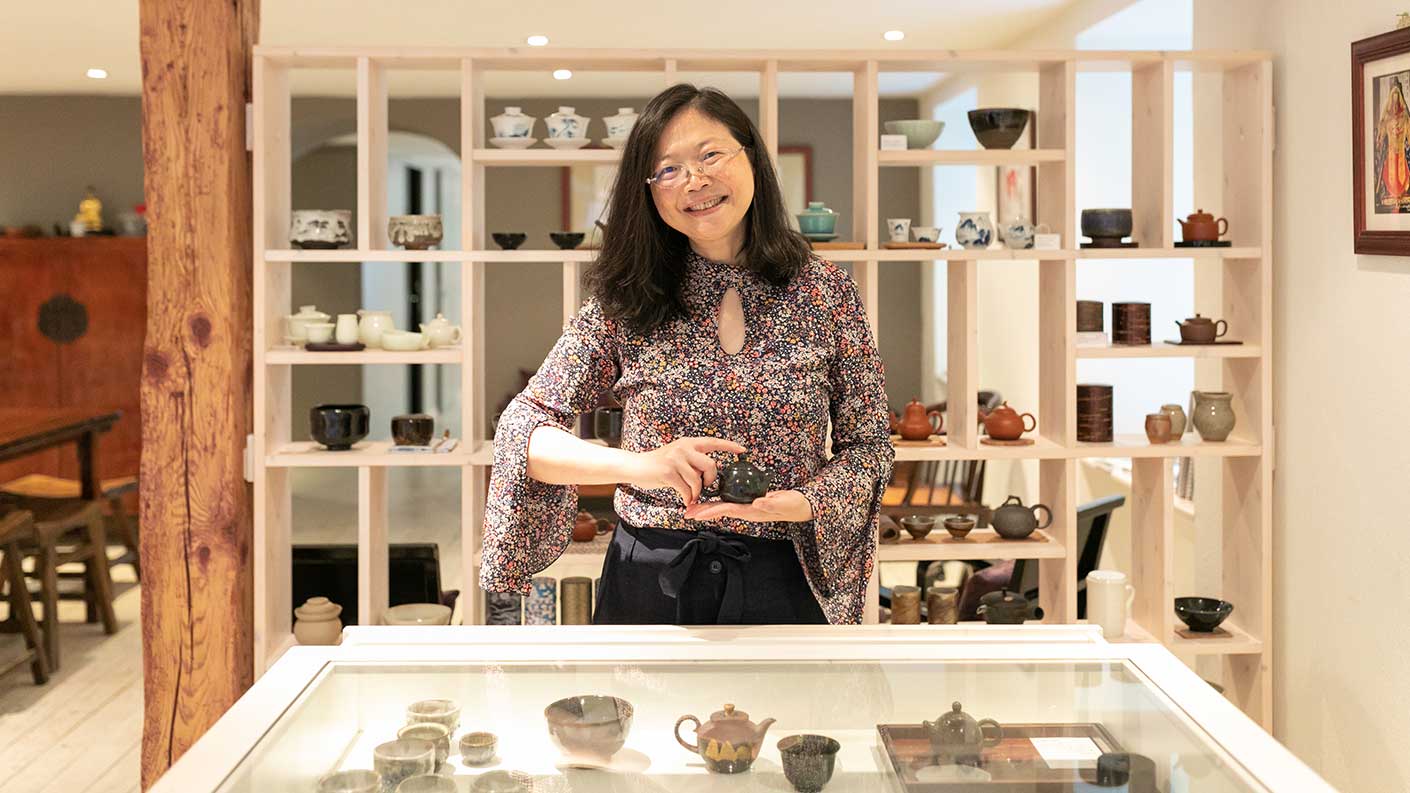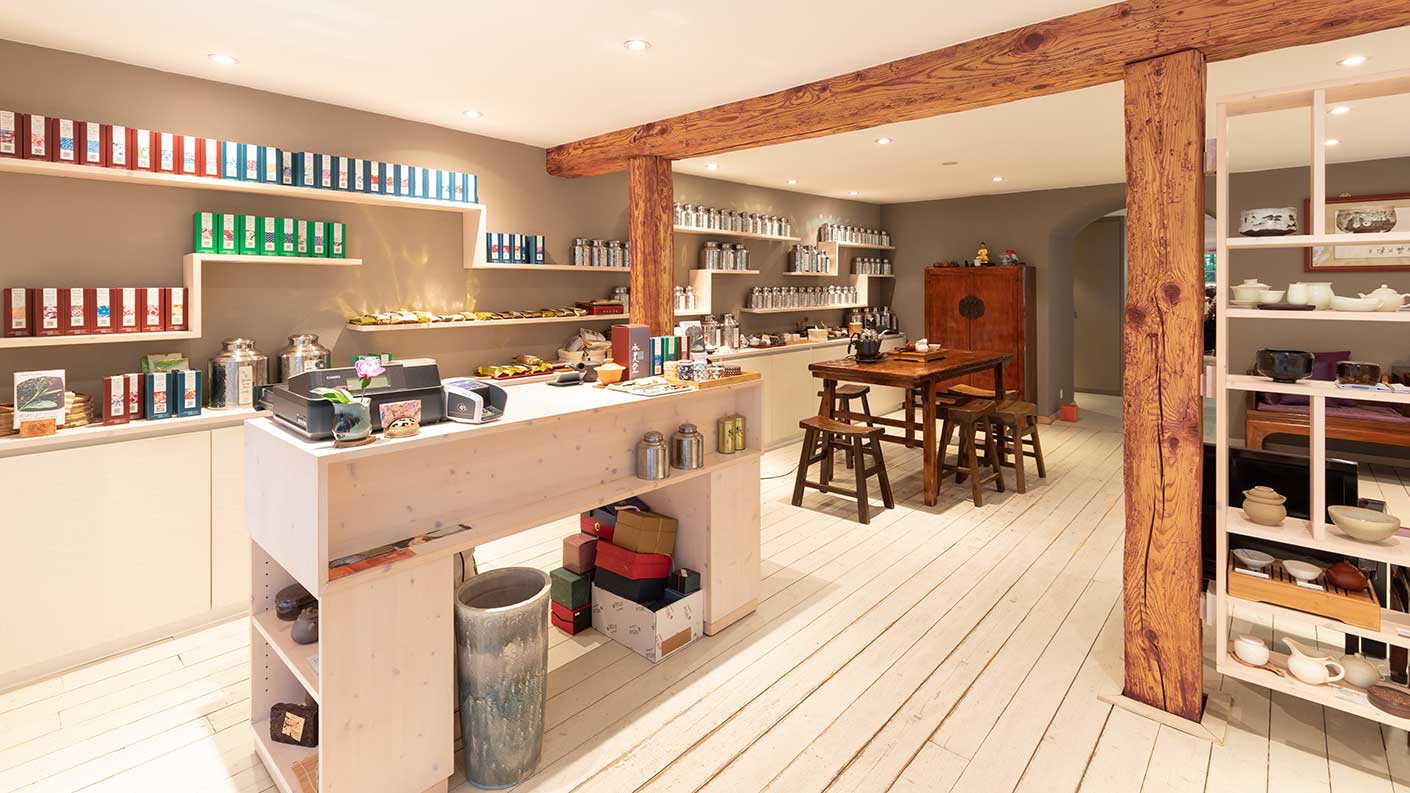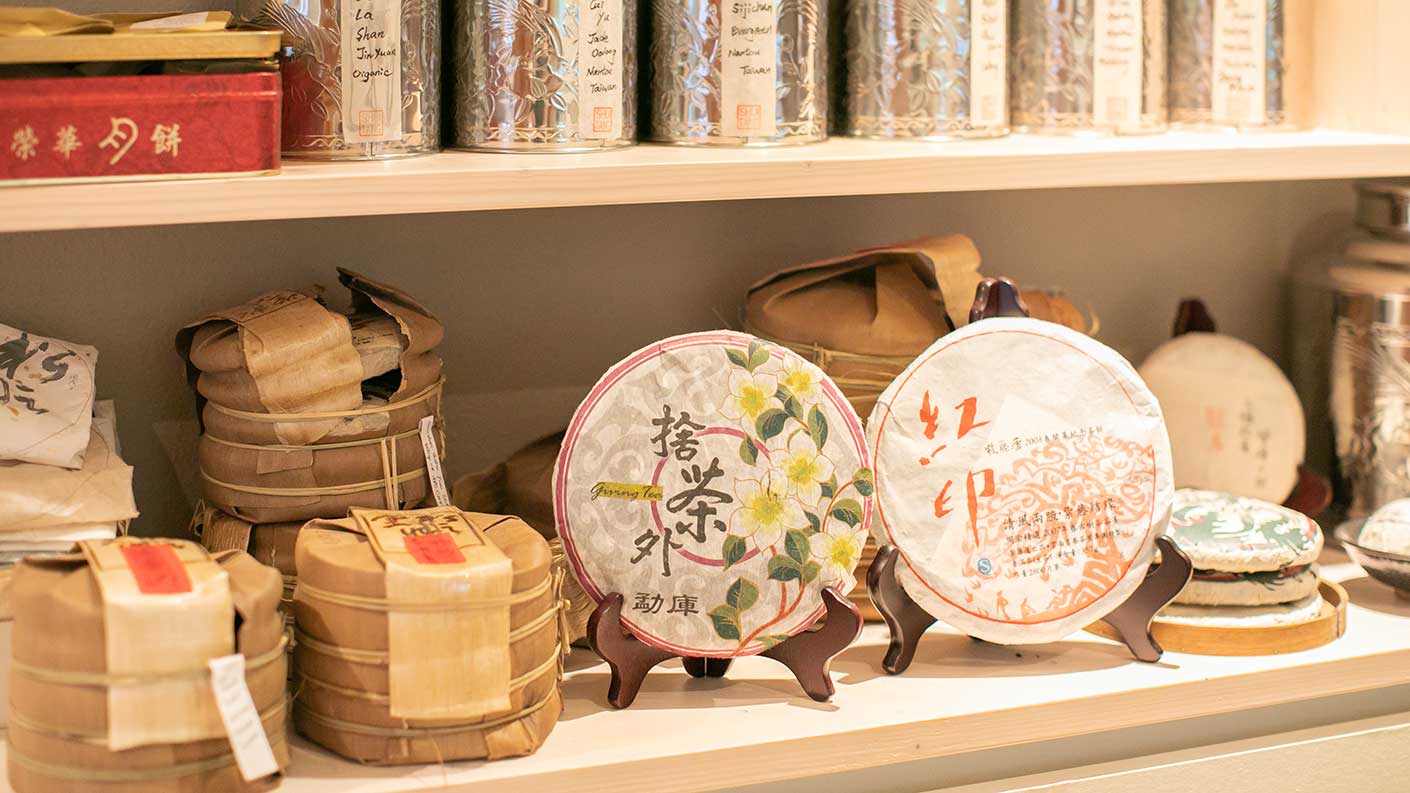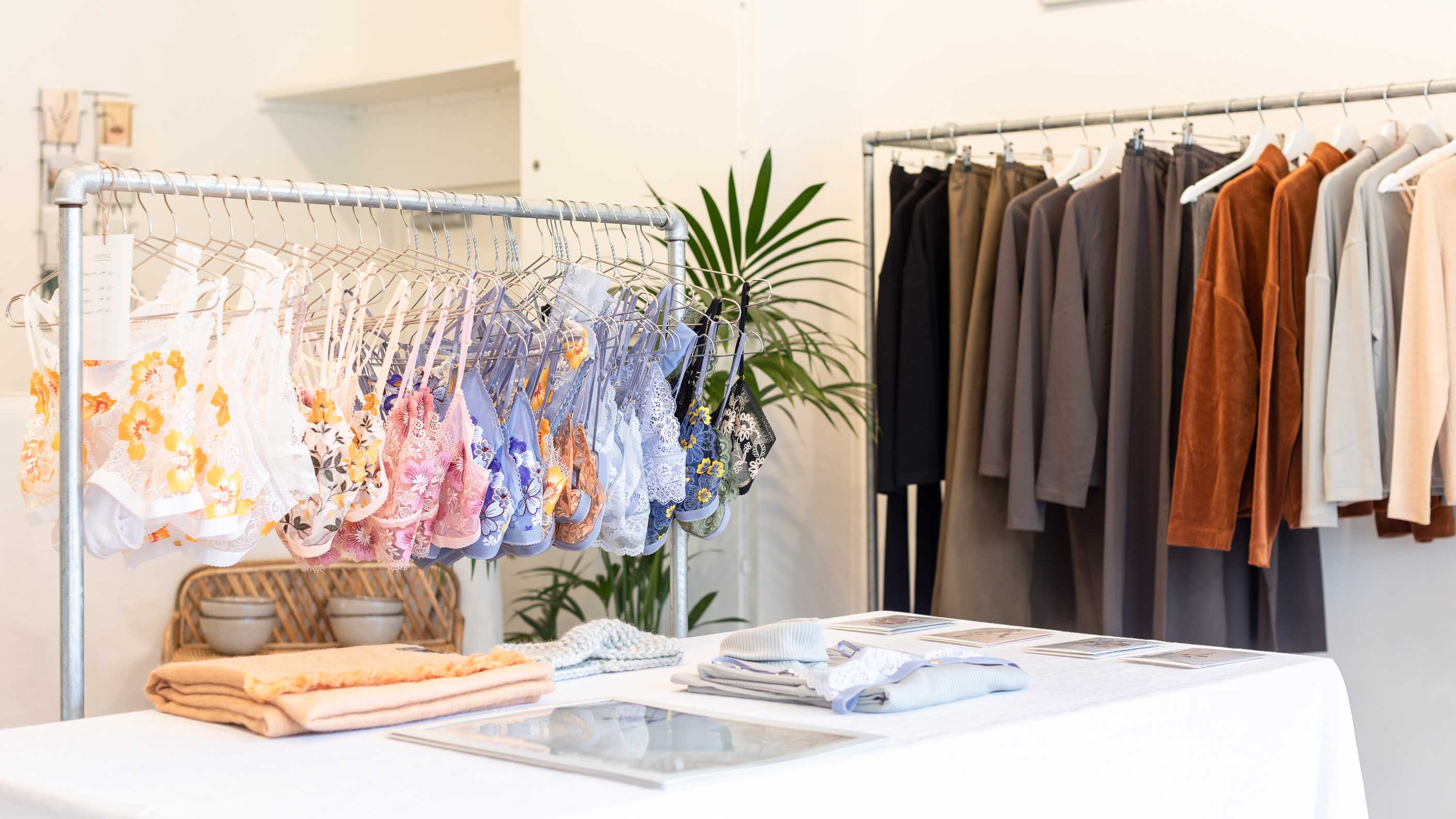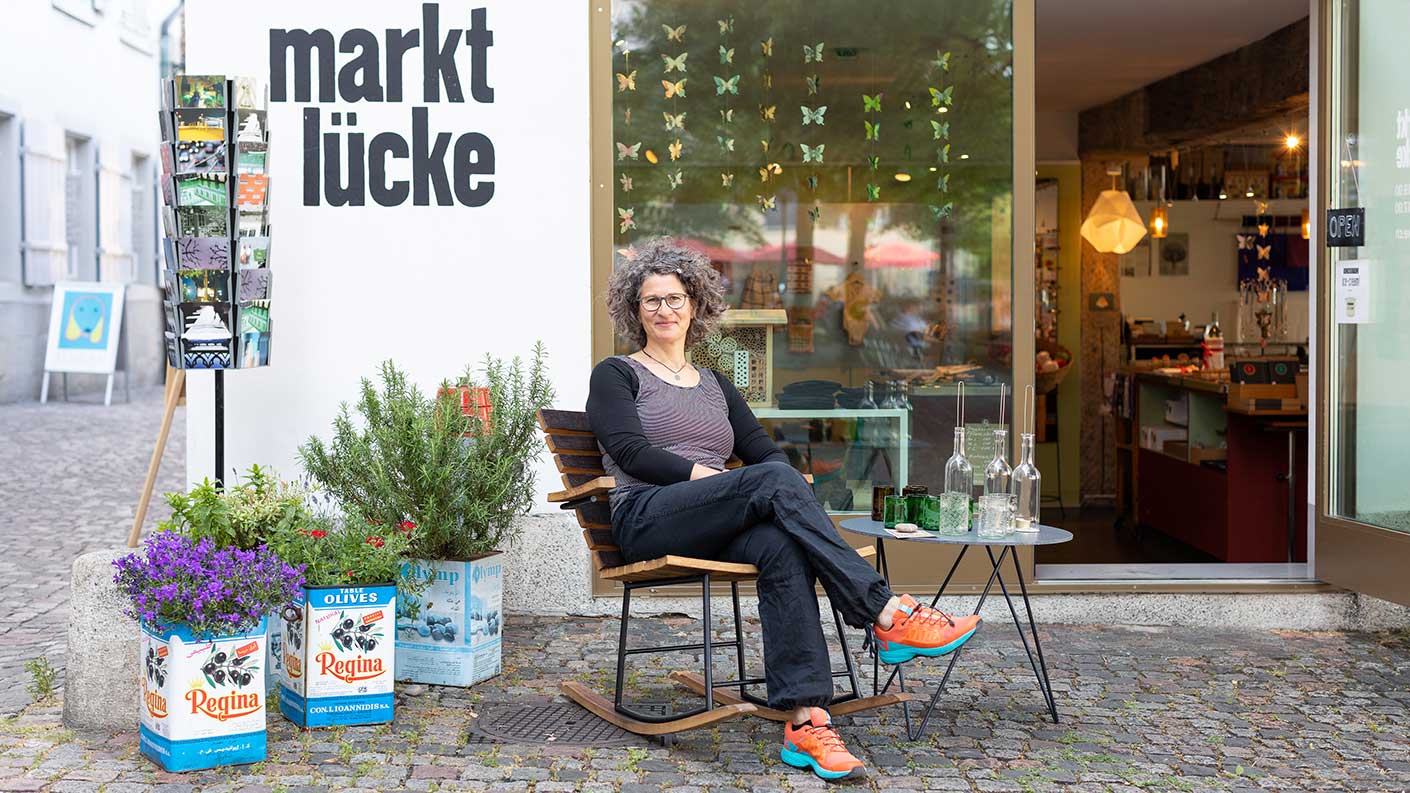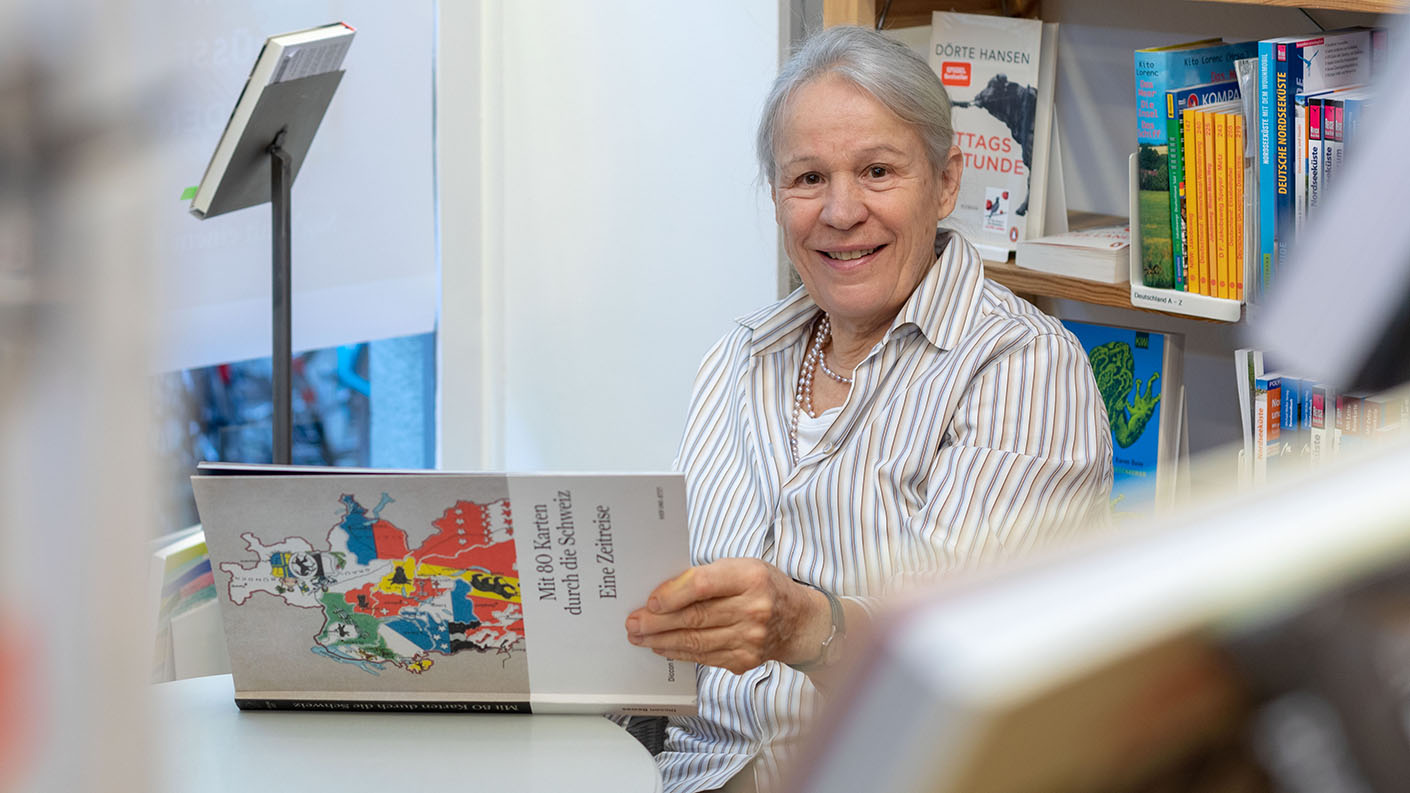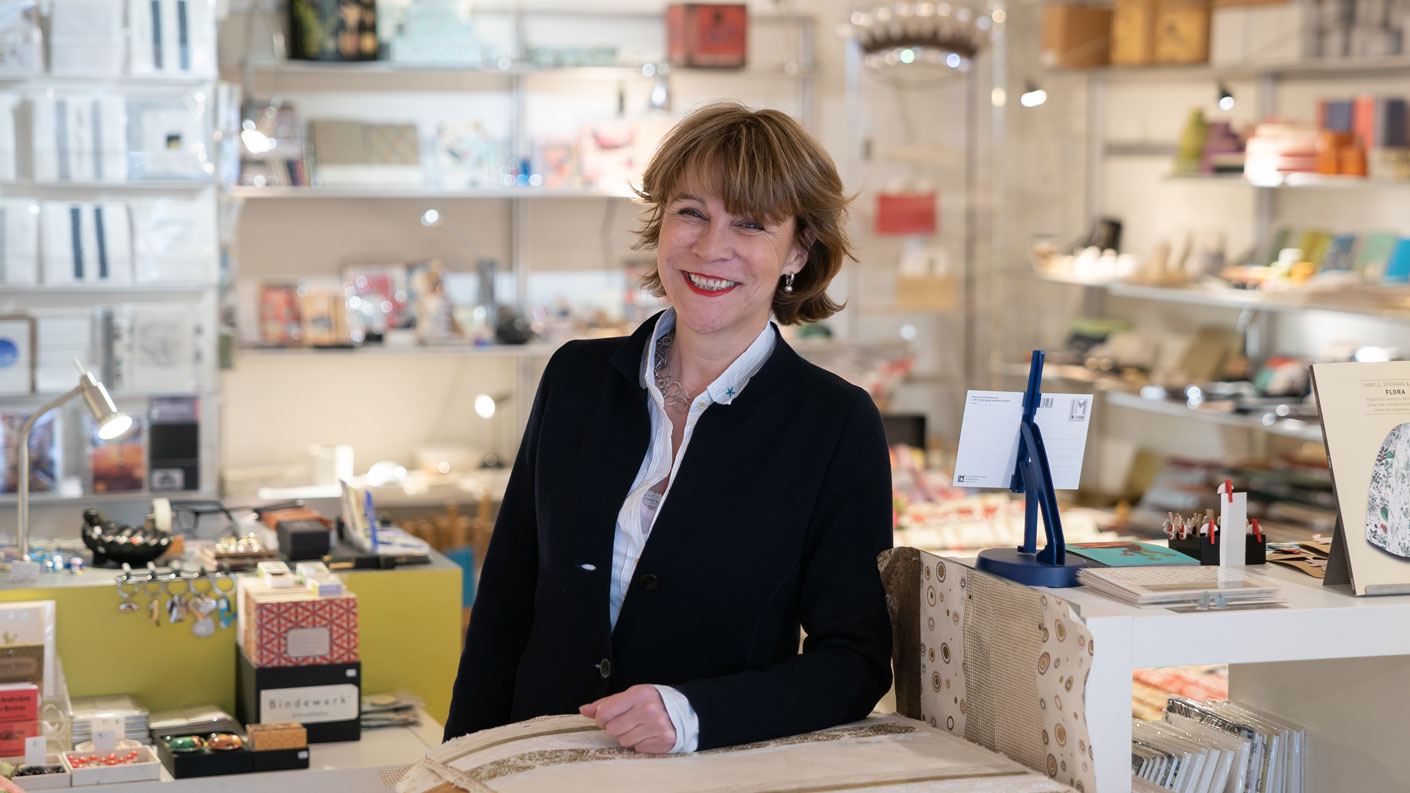Shui Tang
Meng-Lin Chou from Taiwan stimulates her customers’ senses at her tea house in the old town.
The tiny shop is the place to buy premium teas. Owner Meng-Lin Chou goes to great lengths to help her customers select the right blend, because it does so much more than simply quench thirst. For example, tea can provide clarity or a sense of sanctuary.
Shui Tang tea house is tucked away down narrow Spiegelgasse. When you enter it doesn’t feel like a shop but more like someone’s living room. A group of people are sitting together, chatting and drinking tea. While she prepares the tea, shop owner and host Meng-Lin Chou regales them with stories about her recent trip to Taiwan. Meng-Lin makes regular trips back to the land of her birth. This is also the origin of the tea in the silver canisters on the shelves behind her. With practised movements, Meng-Lin pours the golden liquid brewed from the leaves of a 300-year-old plant into a traditional tea bowl.
Meng-Lin only stocks exclusive, top-quality teas.
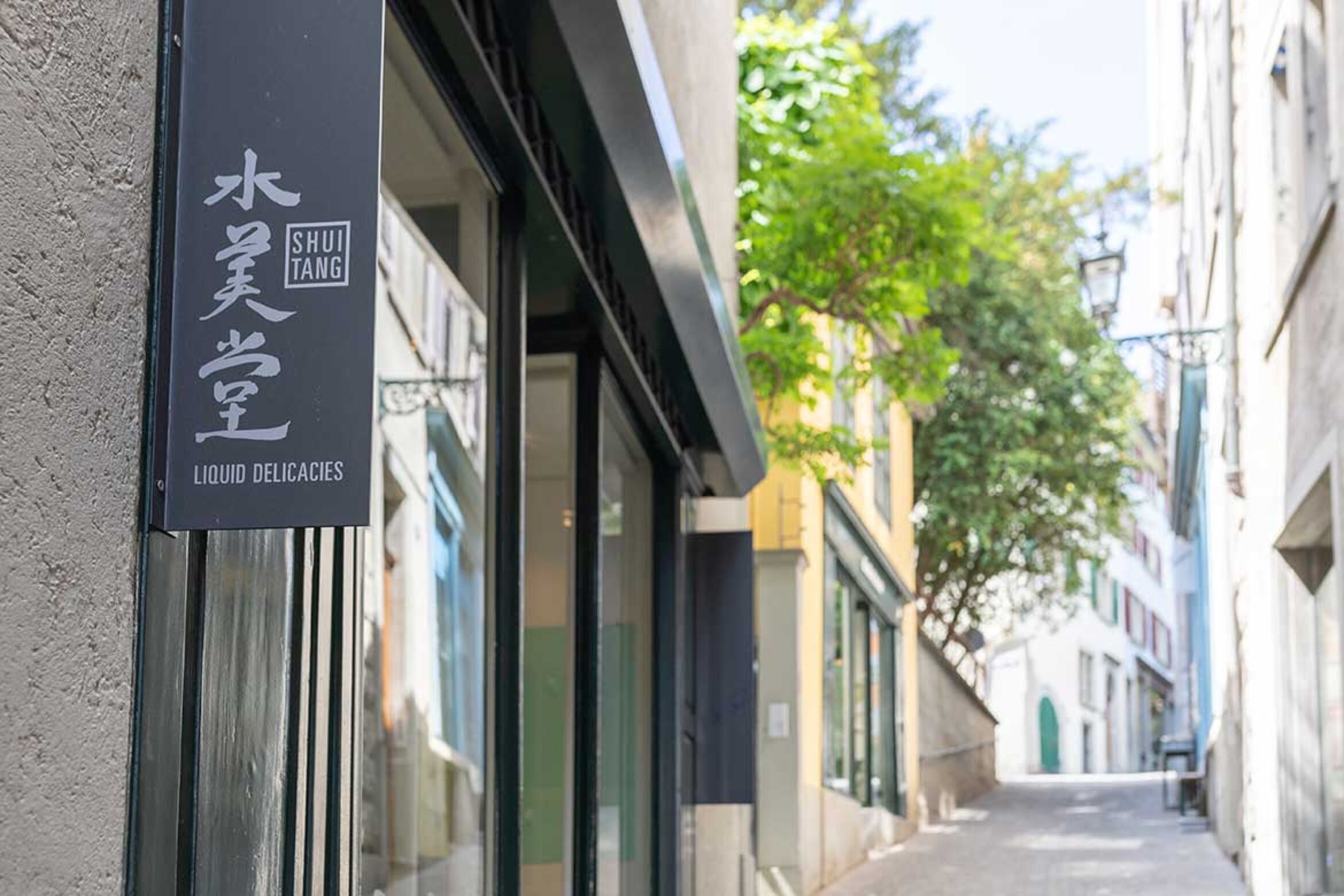
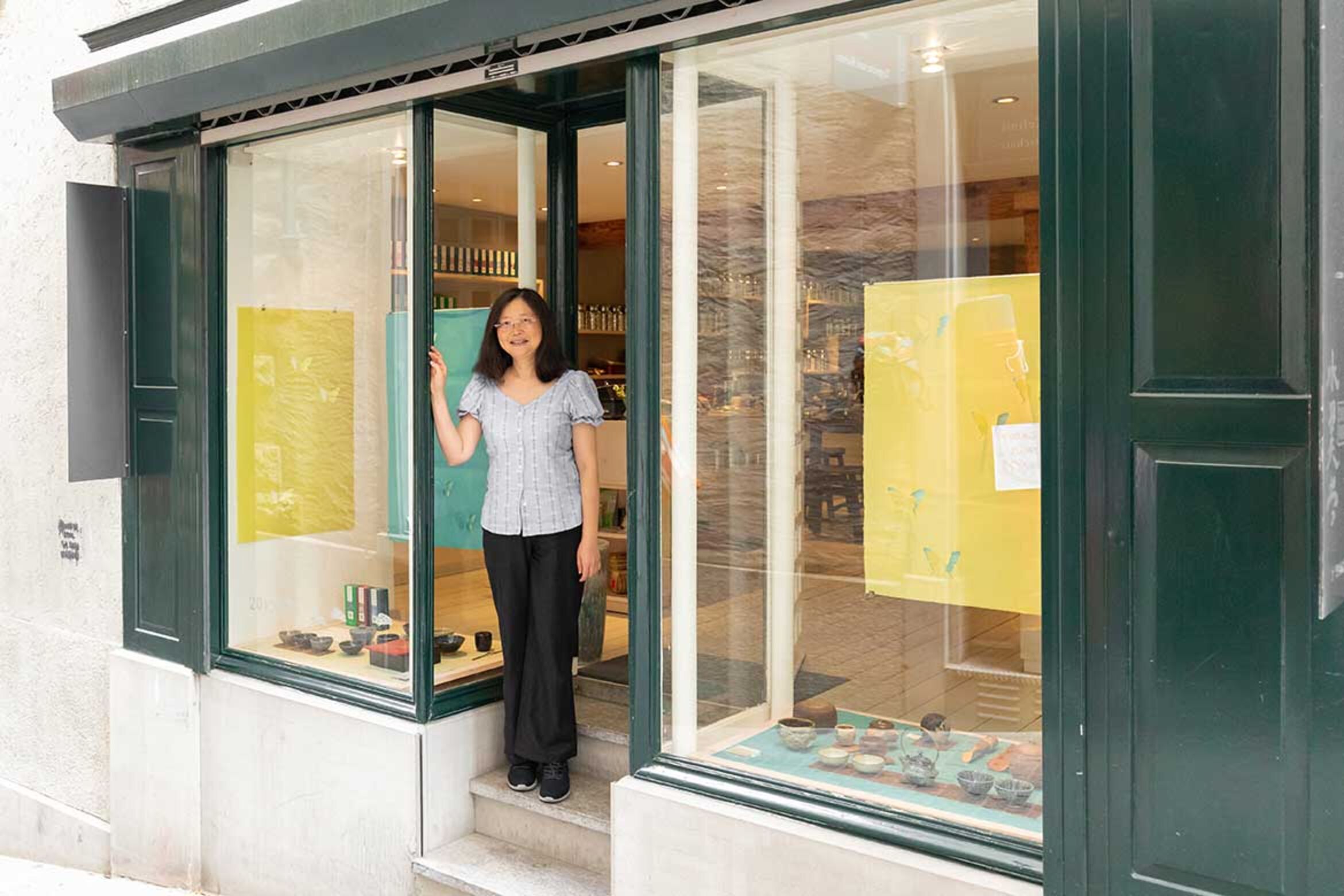
She trained as a tea master in Taiwan. But she originally discovered her love of tea when she did a language course in England: ‘Back then, I drank a lot of Earl Grey,’ she says. But you can’t taste or buy Earl Grey in Shui Tang. Meng-Lin only stocks exclusive, top-quality teas, such as Pu-Er, which is made from the leaves of centuries-old plants, and a selection of premium Oolong teas – green, white, yellow and red. The tea bowls and pots that Meng-Lin uses and sells for tea ceremonies are also not mass-produced but original pieces handcrafted in Asia.
The teas on sale in the upmarket tea house aren’t to everyone’s taste. Meng-Lin tells us that it’s a little like wine – true fans and connoisseurs appreciate the exquisite selection and are willing to pay a reasonable price for it: ‘There is room in this world for things that have character.’
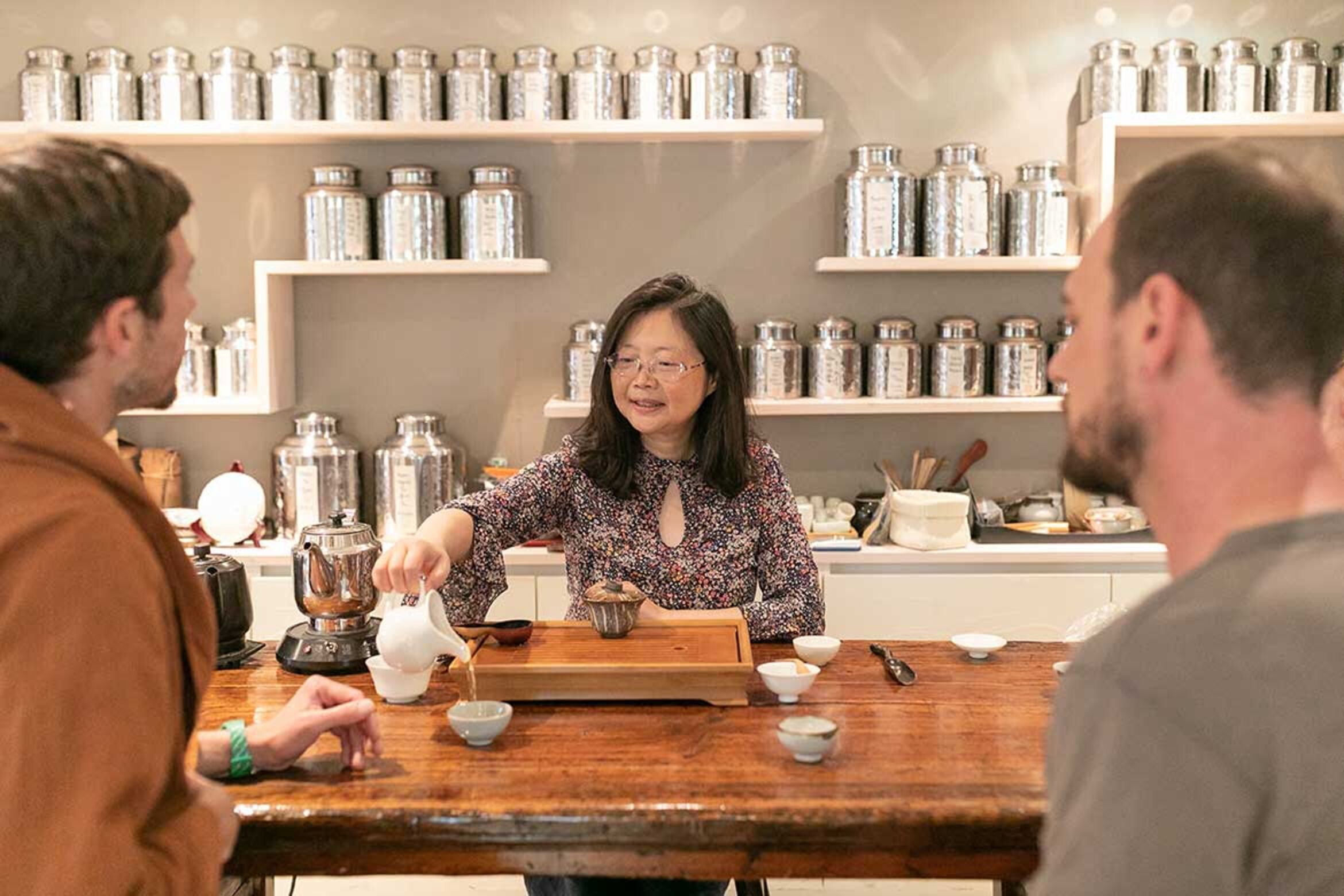
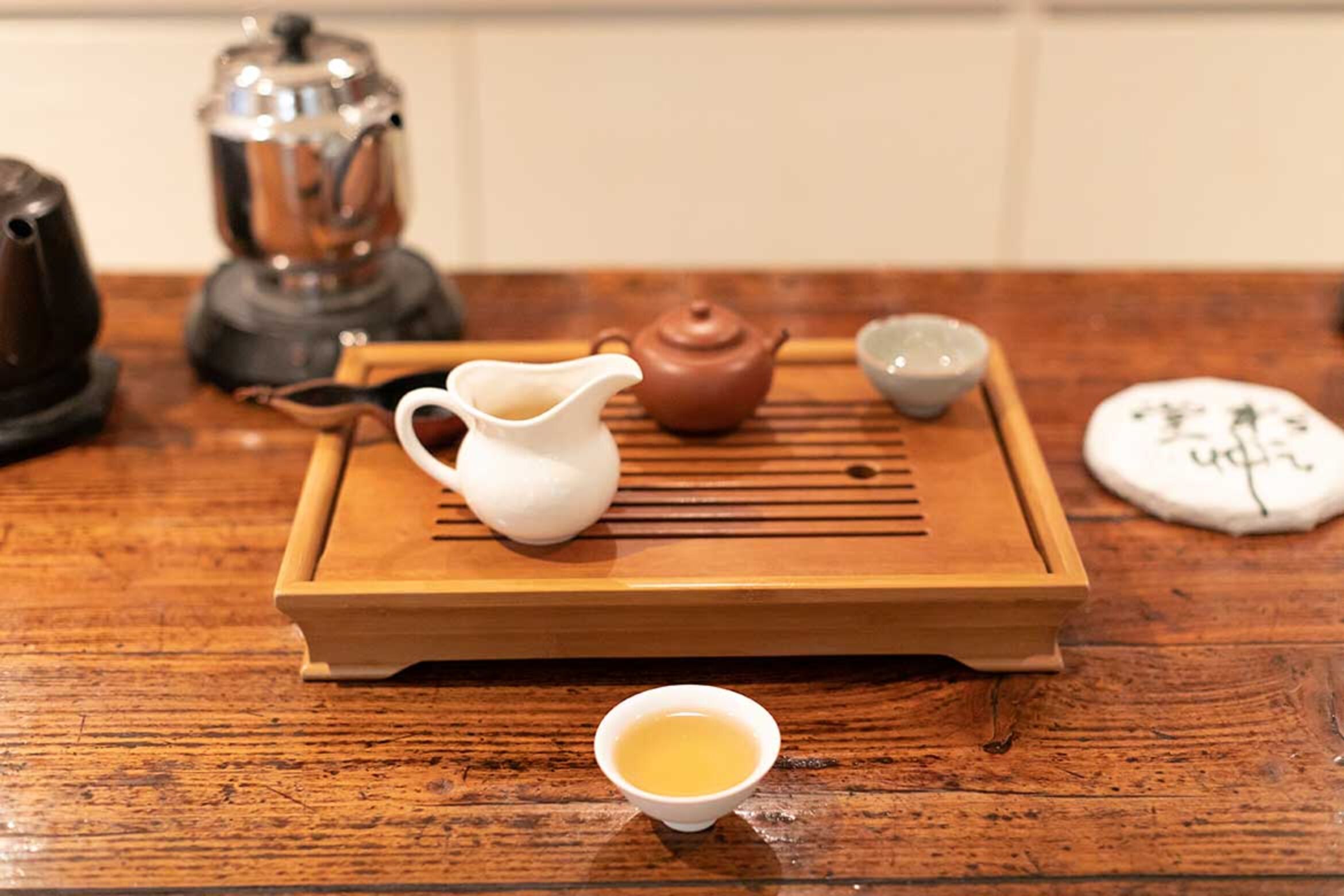
Meng-Lin studied sociology and German in Taiwan and Germany. Her original plan was to do research work at the University of Konstanz: ‘I’ve always been interested in intercultural communication,’ she says. Unfortunately, this communication didn’t turn out as she hoped in the academic setting. But tea is different: ‘Its aroma stimulates all the senses,’ she says. So she decided to change careers. The fact that she already had some major customers in Switzerland encouraged the tea master to move to Zurich.
Shui Tang means ‘place of beautiful water’.
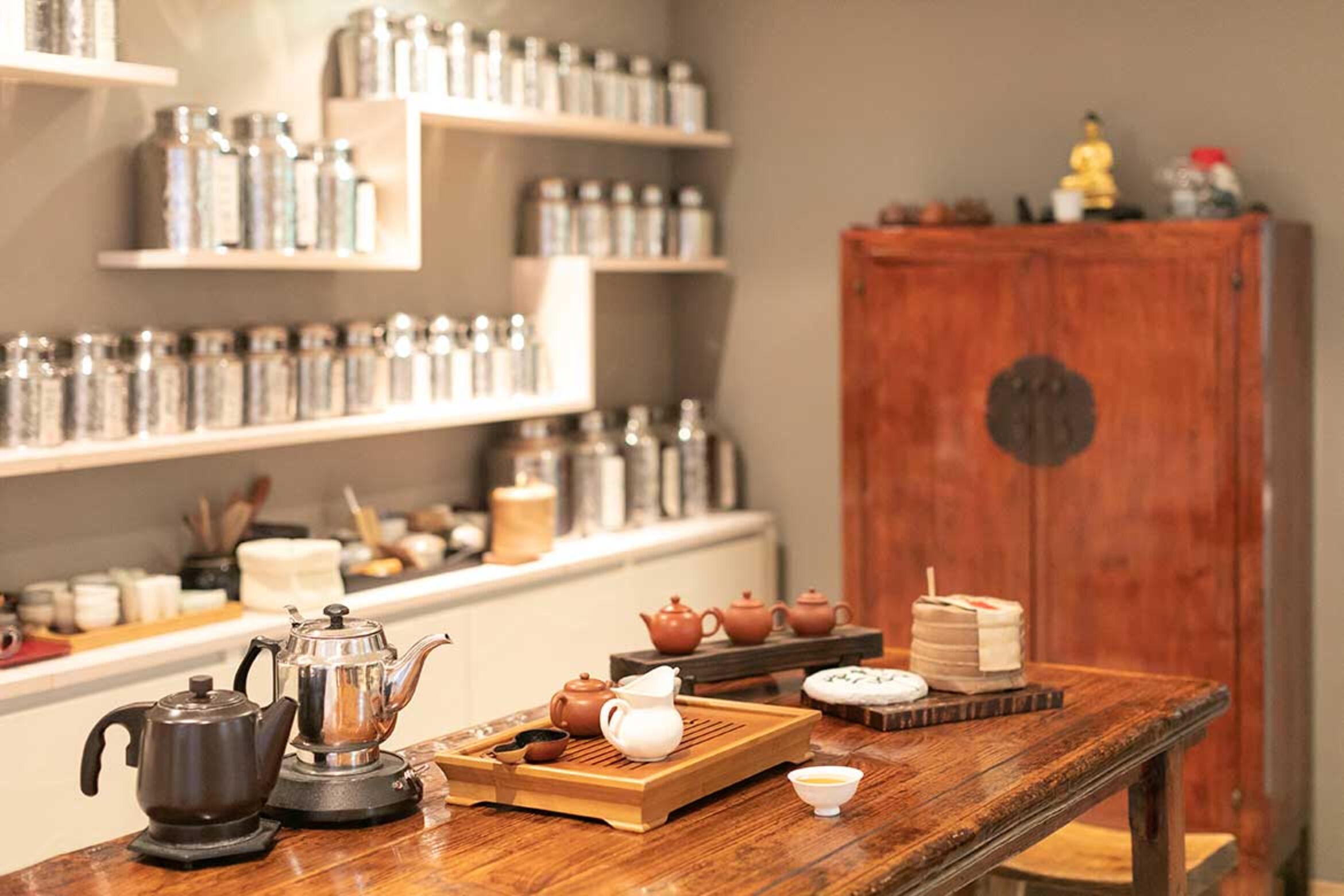
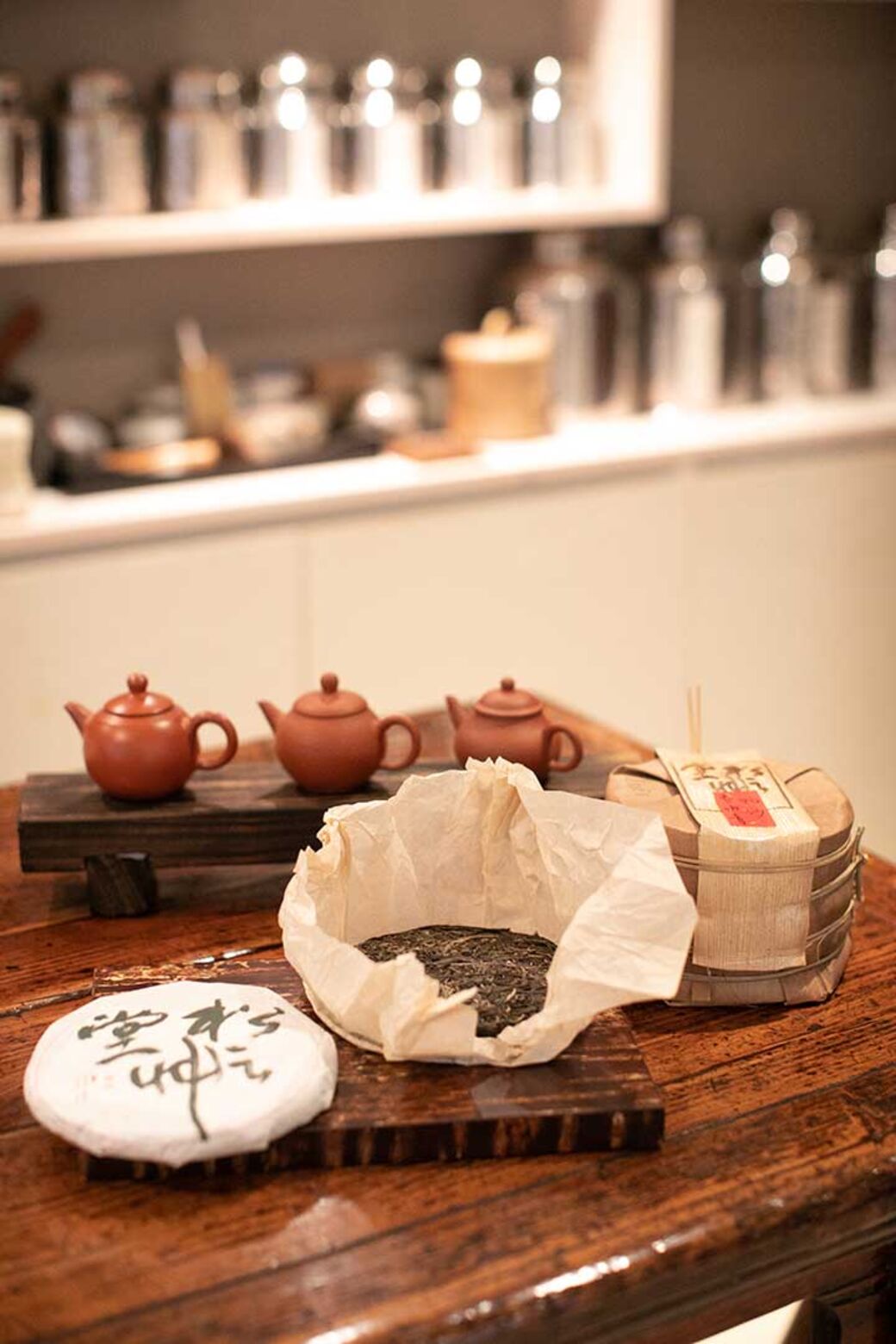
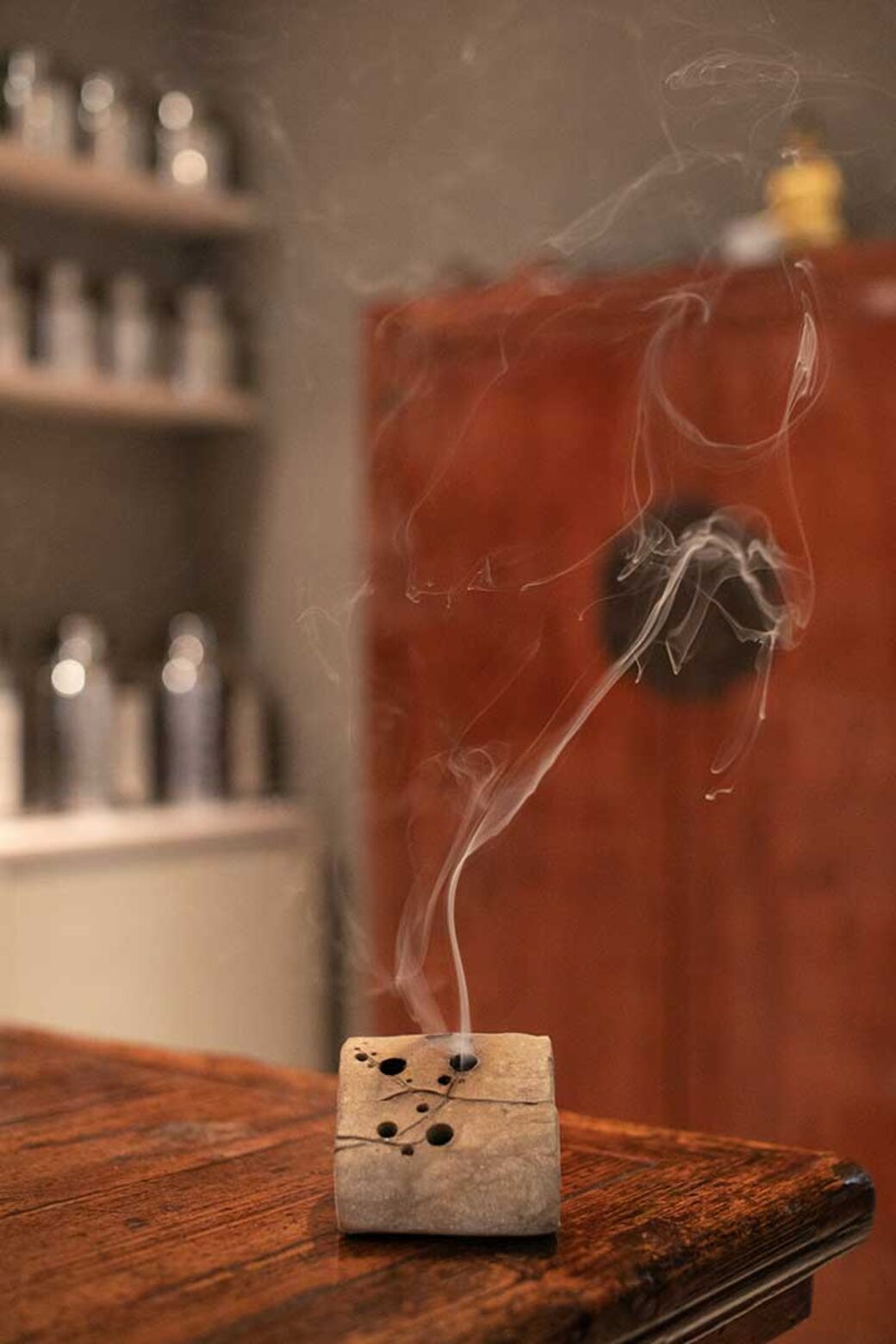
Shui Tang means ‘place of beautiful water’ or ‘place of beautiful energy’. Meng-Lin tells us that in Chinese culture, water is the source of energy. Customers are often looking for energy when they come into her tea house. Society’s needs are reflected in the kind of tea that people buy: ‘The most popular tea varieties are those that bring clarity or a sense of sanctuary,’ says Meng-Lin. Because every tea has its own effect, which is why the tea master recommends different varieties for different conditions. One time it might be a refreshing tea with a floral taste, another case might call for a warming tea with a malty, slightly bitter flavour. Meng-Lin also runs courses and seminars where she shares her knowledge about tea. She teaches the art of the tea ceremony, and tea is tasted and discussed.
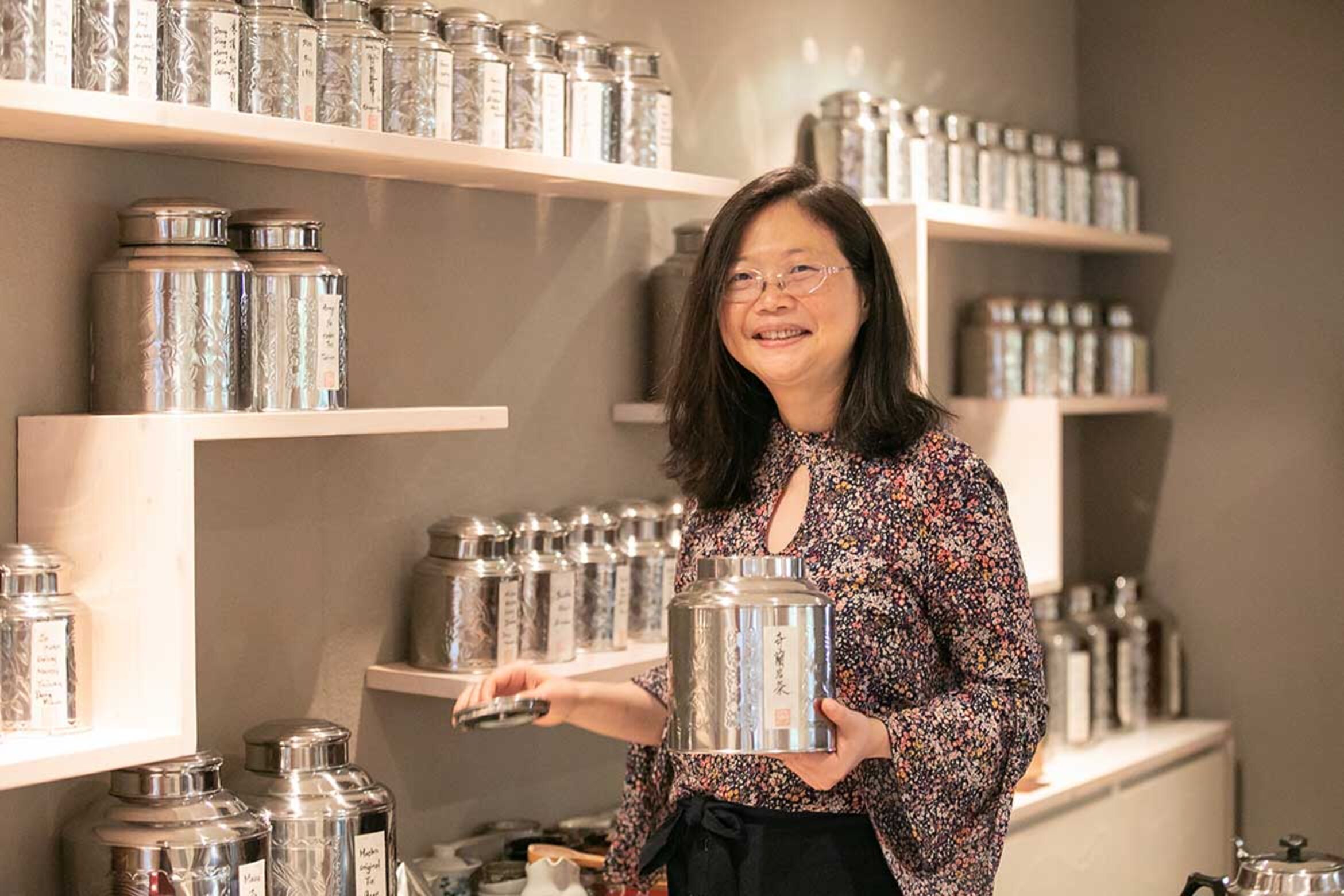
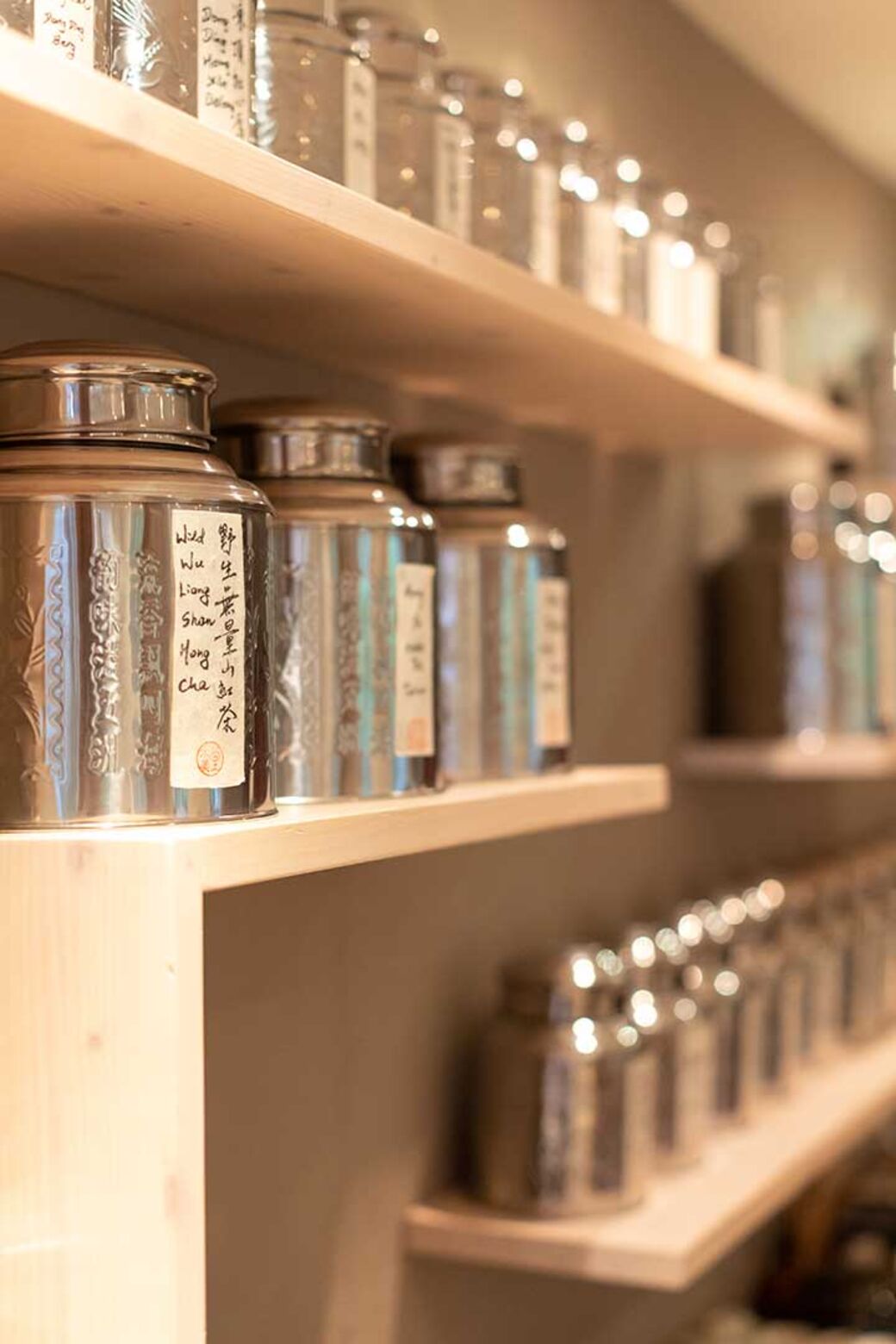
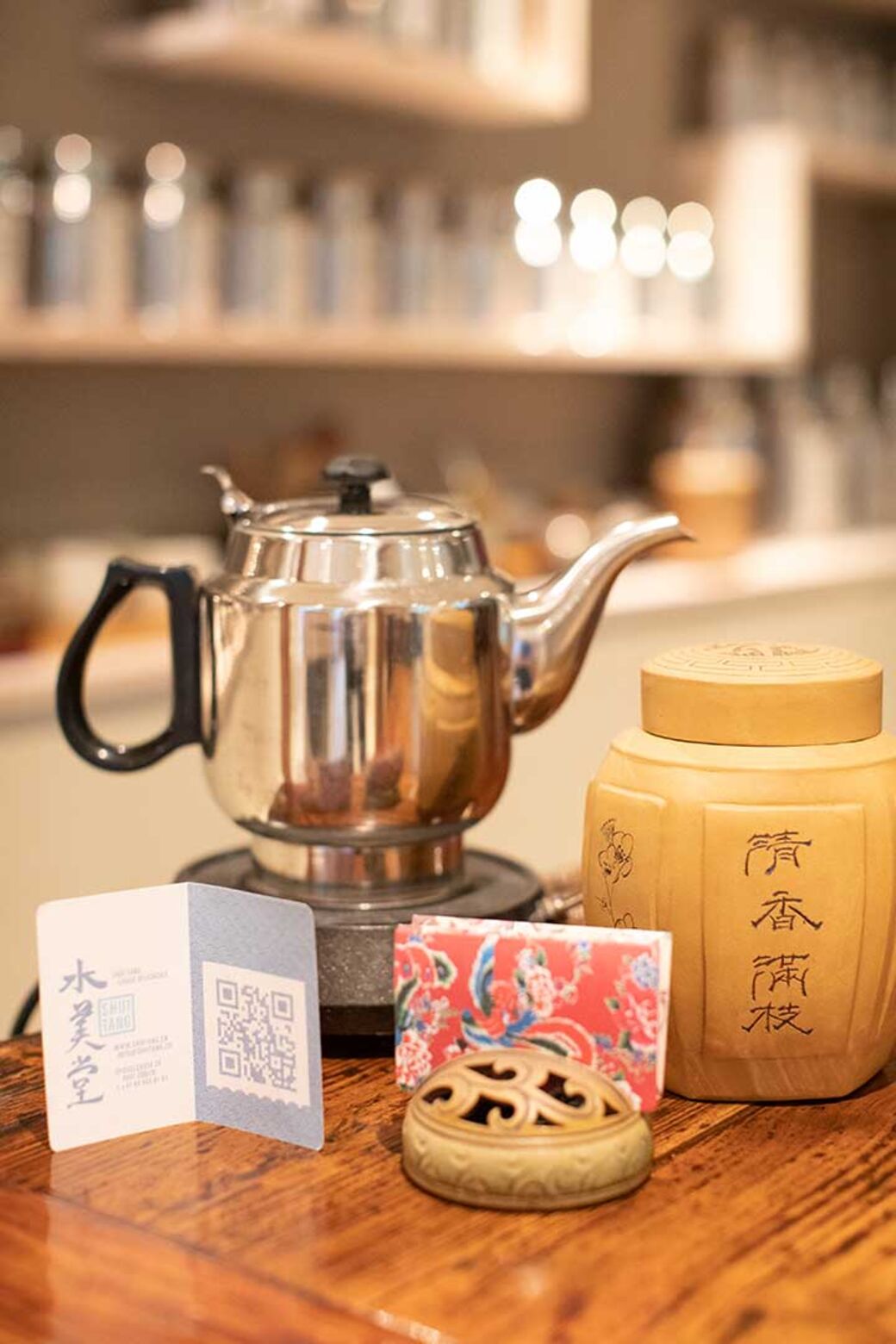
‘Global warming and over-picking are a disaster for tea,’ she says. She only procures it from carefully selected suppliers and is familiar with the cultivated plantations and the forests with their centuries-old tea trees. Meng-Lin buys tea from hybrid plants but is also keen to purchase tea from plants that grow in the wild directly from seeds. The latter are more vulnerable to environmental influences but are ultimately more sustainable. The future of tea may be uncertain, but Meng-Lin has found her vocation: ‘I used to be something of a nomad, but when I performed a Chanoyu tea ceremony for the first time it felt like coming home. Now I want tea to take root in Zurich’s soil.’
Address
Shui Tang
Spiegelgasse 25
8001 Zurich
+41 44 555 91 61
Website
Opening hours
Tuesday to Friday, 11 am – 6:30 pm
Saturday, 11 am – 4 pm
